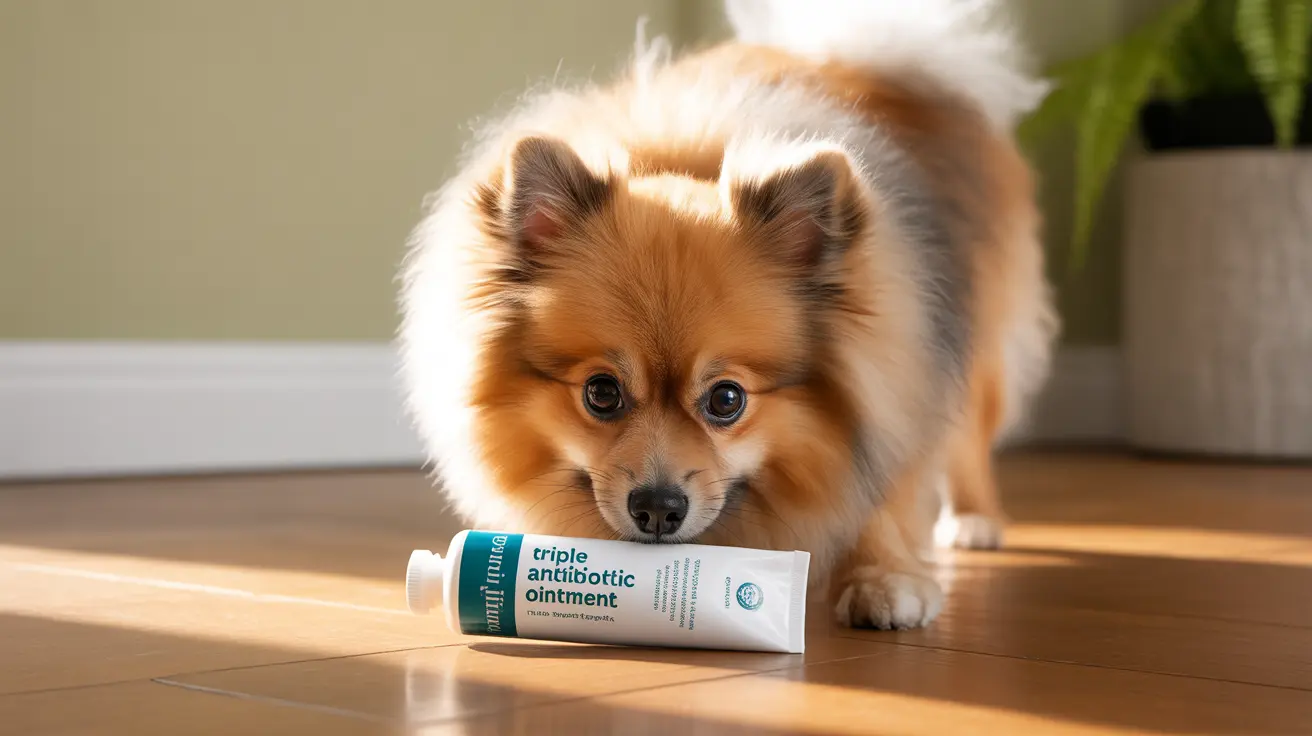Understanding the Risks of Triple Antibiotic Ointment Ingestion
When your dog licks triple antibiotic ointment, it's natural to feel concerned about potential health risks. This common first-aid product, while generally safe for topical use, can cause varying degrees of concern depending on how much your pet has ingested.
Triple antibiotic ointment contains three active ingredients: bacitracin, neomycin, and polymyxin B. While these antibiotics are designed for external use, understanding the implications of accidental ingestion is crucial for pet owners.
Small Amount vs. Large Amount Ingestion
Minor Licking of Applied Ointment
If your dog has only licked a small amount of triple antibiotic ointment from a treated wound, the situation usually isn't cause for serious concern. Most dogs may experience:
- Mild stomach upset
- Temporary diarrhea
- Brief period of drooling
- Possible nausea
Ingestion of Large Quantities
When dogs consume larger amounts, such as chewing up an entire tube, the situation requires immediate veterinary attention. Serious symptoms may include:
- Severe vomiting and diarrhea
- Significant digestive disturbances
- Potential damage to beneficial gut bacteria
- Risk of foreign body obstruction if the tube was ingested
Prevention and Proper Application Methods
To prevent your dog from licking triple antibiotic ointment, consider these essential steps:
- Use an Elizabethan collar (E-collar) during treatment
- Apply the ointment in thin layers only
- Monitor your pet after application
- Consider pet-specific alternatives recommended by your veterinarian
- Keep all medications stored securely away from pets
When to Contact Your Veterinarian
Seek immediate veterinary care if your dog:
- Has consumed an entire tube of the ointment
- Shows signs of severe digestive upset
- Develops unusual behavior or neurological symptoms
- Exhibits signs of an allergic reaction
- Has ingested the actual tube along with the ointment
Safer Alternatives for Wound Care
Instead of using triple antibiotic ointment, consider these veterinarian-approved alternatives:
- Pet-specific antibiotic ointments
- Veterinary-recommended wound sprays
- Natural antimicrobial products designed for pets
- Saline wound cleansing solutions
Frequently Asked Questions
Is it safe if my dog licks a small amount of triple antibiotic ointment applied to their wound?
While not ideal, small amounts typically cause minimal concern. Monitor your pet for mild digestive upset, but serious complications are rare from minor exposure.
What symptoms should I watch for after my dog ingests triple antibiotic ointment?
Watch for vomiting, diarrhea, loss of appetite, lethargy, or unusual behavior. Severe symptoms like persistent vomiting or neurological signs require immediate veterinary attention.
How can I prevent my dog from licking off the antibiotic ointment after applying it?
Use an Elizabethan collar (E-collar), apply the ointment in thin layers, and consider protective bandaging when appropriate. Supervision after application is essential.
When should I contact a veterinarian if my dog swallows a large amount of triple antibiotic ointment?
Contact your veterinarian immediately if your dog consumes a large amount or entire tube of the ointment, or if they show any concerning symptoms like severe vomiting or unusual behavior.
Are there safer alternatives to triple antibiotic ointment for treating my dog's minor wounds?
Yes, there are many pet-specific wound care products available. Consult your veterinarian for recommendations on appropriate alternatives that are both safe and effective for your dog's specific needs.
Conclusion
While triple antibiotic ointment ingestion isn't typically life-threatening, it's important to take appropriate precautions and monitor your pet closely if exposure occurs. When in doubt, always consult with your veterinarian, especially for larger amounts ingested or if concerning symptoms develop.
Remember that prevention is key - using pet-specific products and proper protective measures can help avoid these situations altogether. Keep all medications safely stored away from curious pets, and always follow your veterinarian's recommendations for wound care.






